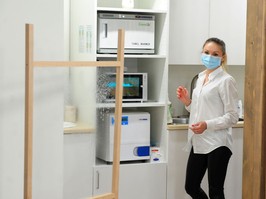more sex may mean later menopause: study
women who had sex monthly were found to be 19 per cent less likely to experience early menopause.

menopause symptoms landscape poster. creative hand drawn lettering. beautiful typography in doodle style useful for banner, card, print, poster and t-shirt design. editable vector illustration
a new study suggests that women who have sex frequently are at a lower risk of entering into early menopause, raising the possibility that a variety of lifestyle factors can impact when menopause starts.the research, published in royal society open science, followed 3,000 women for almost 10 years, finding that women who had sex weekly were 28 per cent less likely to have experienced menopause at any given age. women who had sex monthly were found to be 19 per cent less likely to have experienced menopause early.the authors defined having sexual activity in the study as sexual intercourse, oral sex, sexual touching and caressing or self-stimulation.megan arnot, a phd candidate at ucl and the first author on the paper said that the study suggests if a woman is not having sex and there is no chance of the woman being pregnant, then the body ‘chooses’ not to invest in ovulation.“there may be a biological energetic trade-off between investing energy into ovulation and investing elsewhere, such as keeping active or looking after grandchildren,” she said.the research is based on data collected 2,936 women in the usa’s study of women’s health across the nation (swan) in the 1990s. at the first interview, the women were 45 years old. non-hispanic caucasian women represented 48 per cent of the sample, and a majority of the women were educated to above a high school level.on average, they had two children, 78 per cent were mostly married or in a relationship, and 68 per cent were living with their partner.the women were asked to respond to a series of questions including whether they had engaged in sex with their partner in the last six months, the frequency of sex and whether they had engaged in sexual stimulation in the past six months. the most frequent pattern of sexual activity was weekly (around 64 per cent).none of the women had entered menopause yet but 46 per cent were starting to experience early symptoms including hot flashes and changes in their period cycles. by the ten year mark, 45 per cent of women had experienced natural menopause by the age of 52.by that time, the study found that on average, women who had sex weekly were 28 per cent less likely to have experienced menopause at any given age. women who had sex monthly were found to be 19 per cent less likely to have experienced menopause early.the researchers say they have yet to determine the biological factors that would result in sexual activity actively influencing when a woman’s reproductive cycle comes to an end.the study looked to see whether living with a male partner would impact results, but found no link, saying that exposure to male pheromones didn’t explain the data.ucl professor ruth mace, the senior author on the paper, added that, “the menopause is of course, an inevitability for women and there is no behavioural intervention that will prevent reproductive cessation. nonetheless, these results are an initial indication that menopause timing may be adaptive in response to the likelihood of becoming pregnant.”
 2 minute read
2 minute read




